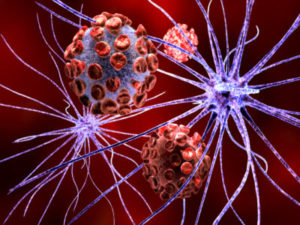There are various debates taking place recently about how marijuana does and does not affect us – from impairment while driving, leading us to try other drugs, and several other potential aspects of marijuana use.
One commonly known side effect of smoking marijuana is memory loss, often just short-term, but many people do experience some memory loss after extended periods of cannabis use. However, a recent study found that the negative impacts of cannabis use on your memory can be quickly reversed simply with time.
According to the study, young adults and adolescents who have been using cannabis regularly but stop for 30 days, notice a better memory and improved ability to learn compared to those around them who continue to smoke, ingest, or vape pot.
This study was done by researchers at Massachusetts General Hospital and focused on two broad areas of cognitive function – memory and attention. The group observed ranged in age from 16 to 25 years old and were regular cannabis users – meaning they indulged at least once a week.
Of the test subjects – 88 subjects – roughly two-thirds were assigned to abstain from marijuana for 30 days. The remaining test subjects were assigned to continue their routine use. Researchers gave frequent urine tests to verify that each participant was actively participating according to their assignment. Almost 90 percent of the two-thirds that were assigned to abstain met the criteria for a continuous 30-day abstinence period.
“Our findings provide two pieces of convincing evidence,” said lead author Randi Schuster, director of neuropsychology at the Center for Addiction Medicine at the Boston hospital.
“The first is that adolescents learn better when they are not using cannabis,” she said. “The second — which is the good news part of the story — is that at least some of the deficits associated with cannabis use are not permanent and actually improve pretty quickly after cannabis use stops.”
However, there was no evidence that there was a difference in attention, which is classified as the ability to stay focused on a visual task as one example. Both groups exhibited like abilities for this area.
Schuster did say that it is possible a longer period of abstinence is needed to see a reversal of attention deficits that occur with cannabis use.
While it might seem like just a temporary high, cannabis does affect your body in other ways – and ways you might not realize for a little bit of time.
The Increase in Marijuana Induced Psychosis
Marijuana has become a widely accepted substance in many parts of the world. With the increasing legalization and decriminalization of marijuana, its use has become more common. However, studies have shown that with increased use of marijuana, there has been a rise in cases of marijuana-induced psychosis. This article delves deeper into this issue and explores the surprising link between psychotic episodes and marijuana.
The Rise in Marijuana Induced Psychosis

Psychosis is a rare but severe mental health disorder that affects the individual’s thoughts and perceptions. The use of marijuana has been linked to the onset of psychosis, which is often referred to as marijuana-induced psychosis. According to a study conducted by the National Institute on Drug Abuse, marijuana use can increase the risk of psychosis by up to four times. The study also reported that people who use marijuana frequently and in high doses are more likely to experience psychotic episodes than those who use it occasionally.
The rise in marijuana-induced psychosis is a cause for concern, especially among young adults. The use of marijuana has become more widespread among young people, and they are often unaware of its potential health risks. Psychotic episodes can be debilitating and can have long-lasting effects on an individual’s mental health. As such, it is crucial to educate people on the risks associated with marijuana use and promote responsible use.
The Surprising Link to Psychotic Episodes and Marijuana
The link between marijuana and psychosis is still not fully understood. Scientists believe that the active ingredient in marijuana, THC, alters the brain’s chemistry, leading to the onset of psychosis. THC can also cause the release of dopamine, a neurotransmitter that plays a crucial role in the brain’s reward system. Overstimulation of the reward system can lead to the onset of psychotic episodes.
It is essential to note that not everyone who uses marijuana will develop psychosis. However, the risk increases with frequent and heavy use. It is crucial to promote responsible use of marijuana and educate people on the potential health risks. This is especially important as the use of marijuana becomes more accepted and widespread.
The rise in marijuana-induced psychosis is a concerning issue that requires attention. The link between psychotic episodes and marijuana is still not fully understood, but the risks associated with its use are clear. It is crucial to promote responsible use of marijuana and educate people on the potential health risks. With proper education and awareness, we can reduce the incidence of marijuana-induced psychosis and ensure that people who use marijuana do so in a safe and responsible manner.



